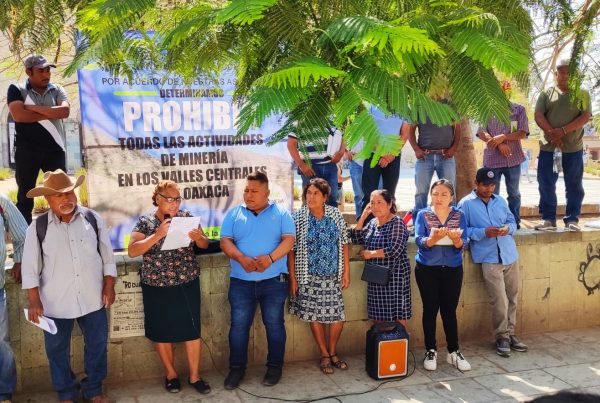By Gabriela Gorbea
 After years of proposals, protests, popular resistance, and a constitutional reform law passed under President Enrique Peña Nieto, Mexico this week finally opened up its nationalized oil industry to private money.
After years of proposals, protests, popular resistance, and a constitutional reform law passed under President Enrique Peña Nieto, Mexico this week finally opened up its nationalized oil industry to private money.
But once the auctioning for new exploration began on Wednesday, it turned out to be a flop.
Mexico successfully auctioned off only two out of 14 oil exploration fields it put on the block, as most industry heavyweights stayed away and some potential bidders apparently didn’t want meet the government’s minimum prices.
Call it another embarrassment for a country still reeling from the unprecedented second jail escape of drug lord Joaquin “El Chapo” Guzman, and a reminder of the problems that Mexico’s oil industry still faces going forward.
The state oil company known as Pemex emerged after the 1938 nationalization of Mexico’s oil, and was seen as a source of pride despite decades of poor performance and more recent heavy losses due to the theft of oil from Pemex pipelines by drug cartels such as Los Zetas. Serious and fatal accidents are also called a too frequent feature at Mexican oil platforms or refineries.
This week’s bidding was expected to help revive the country’s oil production, which has experienced a constant decline for the past 10 years. Peña Nieto signed the reform law meant to open up Pemex to private capital last year.
Bidding investors were promised a 30-year contract to explore the field of their choice in search of oil and other resources.
Some of the world’s biggest energy companies registered for a chance to get a share of Mexico’s oil, including ExxonMobil and Chevron, Norway’s Statoil, and India’s ONGC Videsh Limited. However, only nine companies took part in the bidding, resulting in a disappointment that some observers said might affect the next negotiations with private companies.
“In general, these results have a negative outlook, and may represent a bad sign for investment developing in our country,” Carlos Gonzalez Martinez, an analyst at Scotiabank, told the Mexican newspaper El Financiero.
The two blocks of shallow water fields auctioned on Wednesday were sold to Mexican company Sierra Oil and Gas, part of a consortium with Talos Energy, in Houston, and Premier Oil, in London.
Another nine blocks received no offers at all, and negotiations for the remaining three were called off for being deserted.
A deserted negotiation means that bidding parties failed to present a proposal higher than the minimum price established by the government. In most cases, the amount was set at a 25 or 40 percent state participation, rates established by the Mexican Secretariat of Finance and Public Credit, headed by minister Luis Videgaray.
Yet despite the bad luck, Wednesday’s bidding is only the first-stage auction aiming to sell a total of 169 blocks, divided into 109 exploration areas and 60 extraction fields across the country. And this is just the beginning, since Mexico is expecting to auction one third of its oil resources over the next five years.
The Mexican Secretariat of Energy said it supported the government pricing measures to avoid losses. “We are not going to sell off the country’s oil resources for cheap,” energy secretary Pedro Joaquin Coldwell said on Tuesday.
According to experts, low oil prices and the high minimums established by the government were most likely to blame for the overall failure of the first auction. However, government officials remain optimistic for the following bids, and asked observers to wait before judging the results of the first round.
“There are still four auctions ahead that we see with higher expectations, since they pose a lower geological risk and a higher viability,” Juan Carlos Zepeda, director of Mexico’s National Hydrocarbons Commission, said in statements to the press.
In The Economist, one industry executive who remained unnamed said a residual sense of nationalism affected Mexico’s first dip into selling its oil: “They are still having trouble letting go of the old mindset of full control, rather than letting the market decide.”
Read more on this topic:
Mexico Is Failing To Attract Attention From Global Oil Giants (Forbes)
Oil in Latin America: The good oil boys club (The Economist)
![]()



























